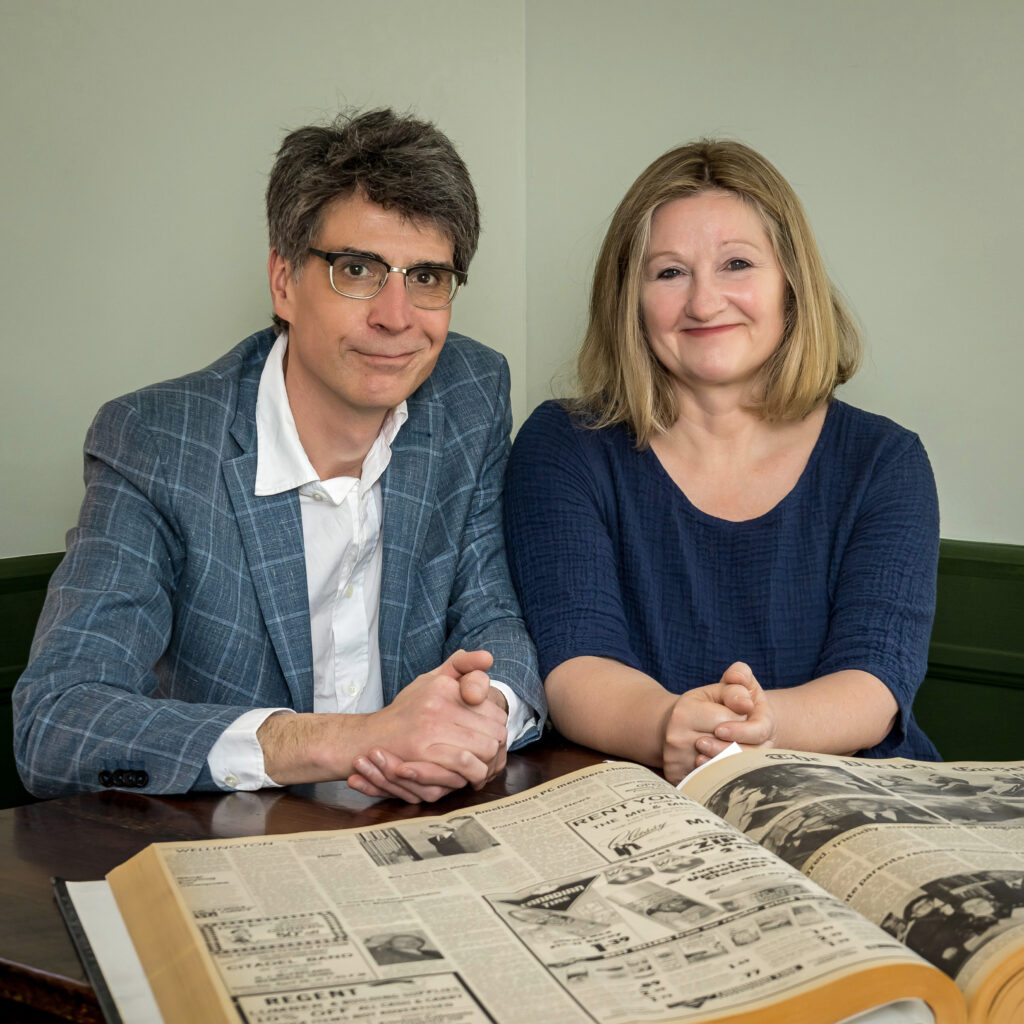Karen Valihora, graduate program director and associate professor in the Department of English, purchased The Picton Gazette, a Prince Edward County historic weekly with the intent of continuing its community-building legacy.

The Picton Gazette, first published as the Hallowell Free Press in 1830, had been owned by Jean Morrison, and her husband, since 1977. After her husband passed away in 1978, she became one of the only female newspaper publishers in Canada. Morrison remained in her role until she passed away at the age 97 in 2019. Since that time, the Gazette has been managed by the Morrison adult children, and a dedicated staff, until they decided to sell in 2022.
Valihora had moved to Picton in Prince Edward County during the pandemic with her partner, Christopher Fanning, who is co-owner of the paper and an English professor at Queen’s University. The Gazette had made a strong impression them when they arrived. “One of the things that drew us to the County was the Gazette,” Valihora says. “I read this paper cover to cover every week, every story, ad, birthday and obituary. We love the Gazette because it has a bit of everything in it, and, delivered to every home in the County, it plays a huge role in sustaining and building a sense of place.”
Not long after moving to the county, the newspaper office closed and Valihora and Fanning noticed the sale of the Gazette building on Main Street of Picton. “We worried about its fate,” she says. They made a decision.
“We thought that buying it was a once-in-a-lifetime opportunity to play a role in sustaining and building the sense of community and of place at a time when they have never been so important,” she says.
“Living here you can feel that the pulse of a rich and vibrant place like Prince Edward County connects you to the whole world. Every single issue of concern here – farming and agricultural land, labour ‘scarcity,’ real estate prices, Syrian and Ukrainian immigration, Indigenous reconciliation, environmental degradation – are also matters of, not just national, but global importance,” says Fanning.
The new publishers plan to work with the staff of the paper to expand its coverage of council politics, planning and development, the arts and local agriculture. They are also working on updating the Main Street office space, as well as navigating a redesign of the paper with a focus on digital delivery that will nonetheless preserve a print edition, which Valihora says is critical to maintaining a sense of place in the community.
For Valihora, it’s also important to explore the possibilities of connecting the paper to the community at York University. “We are excited to begin involving our students and colleagues in writing features that address the sense of place here, as well as provide a forum for research on issues of global concern – things like urban planning and the development of rural land, agri-tourism and the farm-to-table movements, sustainable agriculture and fisheries, and the importance of local and living histories,” she says. “Revitalizing the culture of a community newspaper offers an exciting way to re-think, re-orient, and re-frame the work the University does.”


